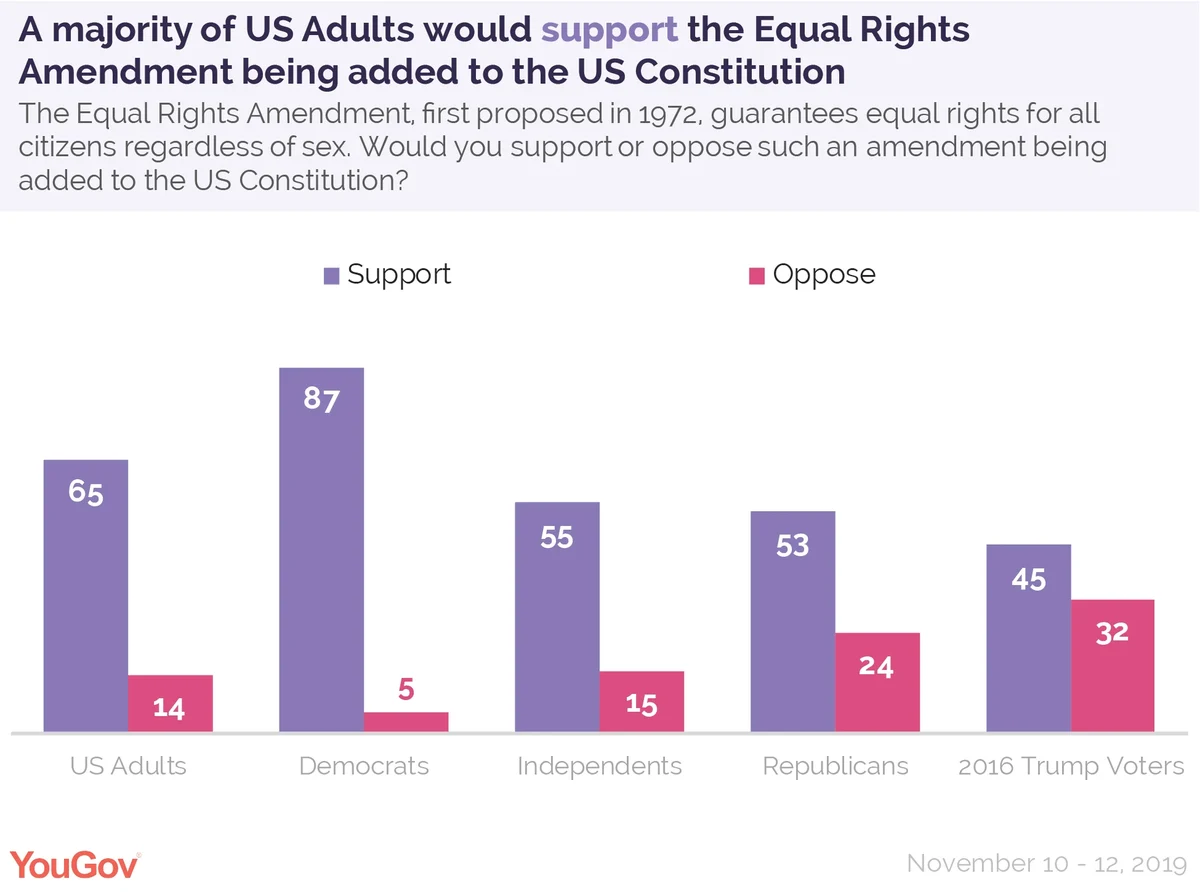The Equal Rights Amendment, which guarantees equal legal rights to all Americans “regardless of sex,” may be on the verge of reaching the number of states required for its ratification, since the 2019 election turned the Virginia State Legislature from Republican control to Democratic majorities.
The ERA was passed by both houses of Congress in 1972 – nearly 50 years ago (It was first introduced in Congress nearly 100 years ago). But there was a deadline – which expired long ago in 1982 – leaving the ERA three states shy of the 38 state approvals required for it to go into effect.
Nevada and Illinois ratified after the deadline passed. Virginia could be the last state to do so, though there are still pitfalls (the still-existing deadline plus the fact that several states claim they have rescinded their ratification).
But despite the fight against the ERA by conservative activists, the Equal Rights Amendment always received majority support from the public. Opposition rose to more than a third toward the close of the battle (35% in a 1982 CBS News Poll), but majorities always supported the ERA.
They still do. Today, in the latest Economist/YouGov Poll, support from all groups – men and women, Democrats and Republicans – remains high.

There are more doubts from self-identified conservatives and those who voted for President Donald Trump in 2016, though pluralities in both groups support the ERA.
The public agrees that the ERA is “important” to ensure that women are considered equally in the Constitution by 63% to 19%; and only 28% overall, answering a different question, think the Amendment “is not necessary.” However, partisan differences emerge on these questions. A plurality of Republicans (48%) and majorities of conservatives (54%) and 2016 Trump voters (55%) believe the ERA isn’t necessary.
A more difficult hurdle for ERA ratification is the deadline, now long-expired. There is a much narrower plurality support for allowing states to ratify the ERA now — after the deadline — than there is for the amendment itself. Republicans, 2016 Trump voters, and conservatives oppose allowing ratification now.
On these questions, partisanship matters more than gender.
Another issue is that relatively few people believe the ERA will make their own lives better. There is not much difference between men and women, though Democrats of both sexes are more likely than others to say adding the ERA to the Constitution would make their own lives better.
The Amendment is seen as more important by younger as opposed to older women of both parties. A majority of women Democrats under the age of 45 say it will make their own lives better. So do a quarter of independent women under 45 (though nearly twice as many in this group aren’t sure about what the ERA would mean to them). The pattern is less clear among the smaller group of GOP women.
No matter the age group, few think the ERA would harm them personally.
Read the toplines and tables results from this week’s Economist/YouGov poll
Image: Getty











